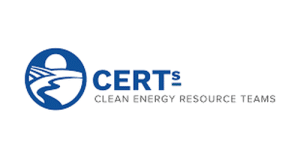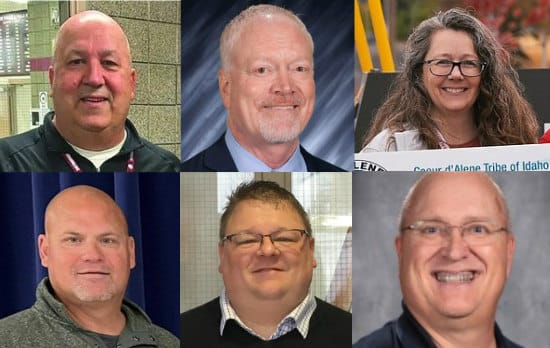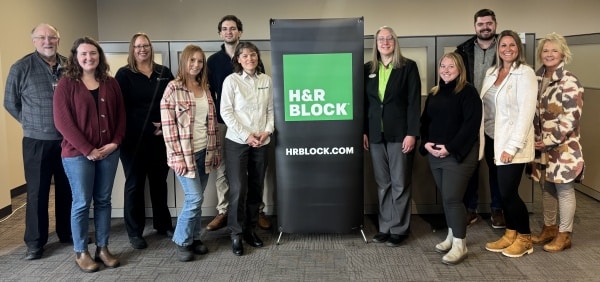Minnesota’s Clean Energy Resource Teams (CERTs) are awarding seed grants to 45 energy efficiency and renewable energy projects—including six within the northwest region of Minnesota. The projects range from educational outreach on clean energy incentives to energy efficiency for manufactured homes and skill-building for clean energy careers.
Seed grants strive to support historically underserved communities. 1 Underserved communities include Minnesota populations with high energy burdens, where households spend more than 5% of their annual income on energy costs (compared to 2% for the average Minnesota household). For example, Thief River Falls Food Shelf plans to make energy-efficiency upgrades to its space and share energy-saving opportunities with its visitors.
Financial and programmatic support comes from CERTs’ partner, the Minnesota Department of Commerce, with additional support from the Morgan Family Foundation. Minnesota’s seven regions each receive $43,000. The support will be distributed among the projects selected by panels of residents known as CERTs Regional Steering Committees.
“I’m excited to work with this new round of CERTs Seed Grants that will support community-identified initiatives while achieving clean energy goals. Many of this year’s projects are improving the quality of life for those who reside in the Northwest, and that is largely why I do this job,” says Anna Peterson, Northwest CERT Regional Coordinator.
CERTs Seed Grants encourage projects that help people see clean energy working in their communities. With over $1.98 million awarded to 509 projects since 2006, the newly funded 2024 projects will provide Minnesota communities with more opportunities toout and experience the benefits of clean energy. For more tangibly information, visit CleanEnergyResourceTeams.org/2024grants.
CERTS SEED GRANTS | NORTHWEST REGION
Aaron’s Grocery: Energy Efficiency Cooling Equipment
Fertile, Minn.—Aaron’s Grocery is one of the few places to purchase fresh produce, meats, and cheeses. Installation of coolers with doors will reduce energy use, provide additional space for perishable food, and extend product shelf life.
Care and Share of Crookston: Energy Efficient Utilities Upgrade
Crookston, Minn.—Investing in homeless shelter upgrades can increase capacity to serve more unsheltered people within communities. This project will use insulation to increase the shelter’s energy efficiency and will use air quality assessments and appliance safety checks to improve the safety of the space.
City of Halstad: Wimmer Home HVAC Efficiency Pilot
Halstad, Minn.—Wimmer Homes were built in the 1960s for low-income, older adults to preserve independence. An HVAC pilot project in the shared laundry unit will add a high-efficiency cold climate mini split with storage heat.
Thief River Falls Food Shelf: Going Green, Going Clean
Thief River Falls, Minn.—Energy efficiency upgrades to this “Super Shelf” food shelf include LED lighting, HVAC upgrades, and additional insulation. The project will save the food shelf energy and offer visitors education opportunities on going green.
Midwest Tribal Energy Resources Association: Gap Funding to Pursue Federal Funding for Tribal Clean Energy Projects
Northwest MN—MTERA will provide resources directly to Tribes to fund necessary aspects of clean energy project development and implementation, such as funding grant writers or hiring contractors for specific elements of projects outside of their or MTERA’s expertise.
Ways That Make ‘Cents’ Video Series
Northwest MN—The video series will educate and inspire viewers by featuring Minnesotans using clean energy resources within their homes, businesses, and communities. Statewide project details are available: CleanEnergyResourceTeams.org/2024grants
For more info from the Minnesota Department of Commerce Energy Resources Division and to sign up for the New Energy Programs newsletter: mn.gov/commerce/energy/
About the Clean Energy Resource Teams: The Clean Energy Resource Teams, or CERTs, connect individuals and communities in Minnesota to the resources they need to identify and implement community-based clean energy projects. CERTs is a partnership of the University of Minnesota Extension Regional Sustainable Development Partnerships, the Minnesota Department of Commerce, the Southwest Regional Development Commission, and the Great Plains Institute. Learn more at CleanEnergyResourceTeams.org.





